Prussia, Courland, Moldavia, Wallachia - all this is a fief of the Polish state. The rulers reigned in them by the grace of our kings. However, they did not always remember it ...
There was a time when the kings of Poland dealt cards in the region. Many of the lands around us depended on the Republic of Poland, which interfered with who was in power there. The policy of Polish rulers sometimes brought wonderful fruit, other times it led to disastrous consequences.
Jan Zygmunt, prince of Prussia, do not let the fox into the henhouse
You give someone the throne, and they show black ingratitude . The Commonwealth reworked this scenario in Ducal Prussia. Pursuant to the provisions of the Treaty of Krakow of 1525, only Albrecht Hohenzollern, his three brothers and their male descendants had the right to the throne.
Polish rulers could sit comfortably with the genealogical table of this Hohenzollern line and cross out new names every few years. In 1618, after the death of Albrecht Frederick, the deranged son of Albrecht Hohenzollern, Ducal Prussia should be incorporated directly to the Crown. However, that did not happen.
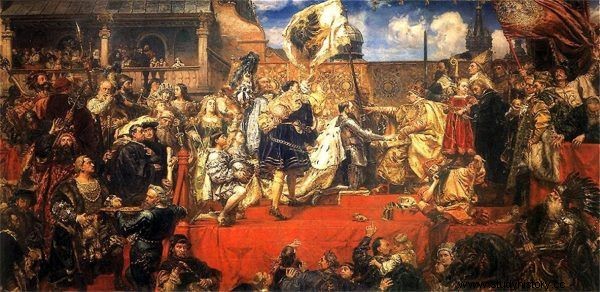
When, in 1525, Sigismund the Old gave the Order of Prussia to Albrecht Hohenzollern, it seemed almost certain that after the Hohenzollern line died out, they would return to Poland. However, the story turned out quite differently. The illustration shows Jan Matejko's painting "Homage to Prussia" (source:public domain).
When it was clear that the mentally ill Albrecht Fryderyk would not leave a male heir, his relatives from Brandenburg . First, they took care of him, and in 1611 the Seym of the Commonwealth adopted a resolution on the Prussian succession and allowed Jan Sigismund, Elector of Brandenburg, to inherit Ducal Prussia.
A surprising decision. A country that fights as equals with Turkey, is able to enter Moscow or to dust the majority of Swedes to the dust, just gave up Ducal Prussia in favor of Brandenburg? After all, in the event of a possible war, the Commonwealth would crush the Brandenburg army like a worm - which Berlin was well aware of.
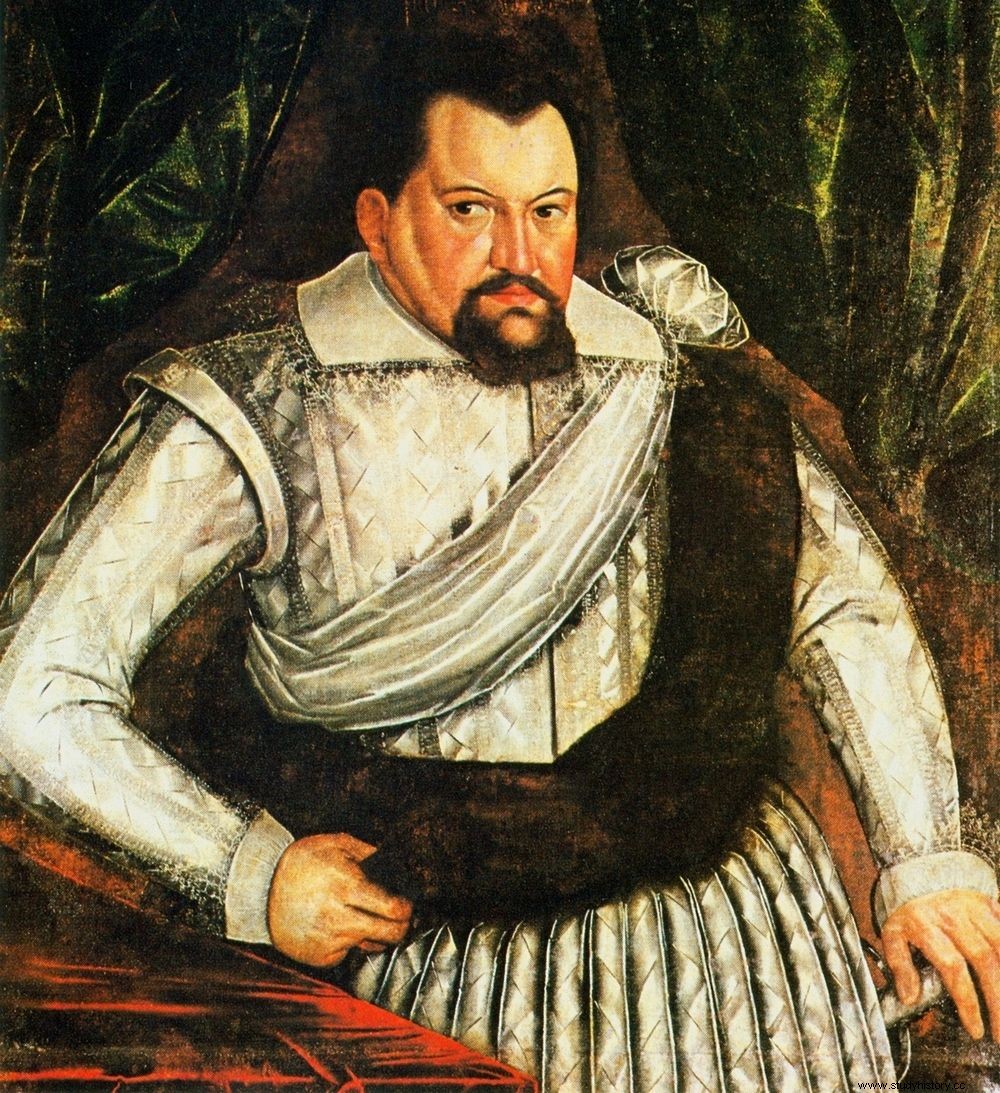
Thanks to his cleverness and diplomatic talents, Jan Zygmunt Hohenzollern secured power in Ducal Prussia for himself and his descendants (source:public domain).
Except that a system of dynastic unions and diplomatic arrangements meant that Brandenburg was followed by Denmark and England, not to mention the other Protestant states of the Reich. In the context of rivalry with Sweden, the help of Denmark and England was counted on, and war on the next front was not a wise idea.
However, there were voices against Brandenburg's attempts. Berlin wanted to bribe Hetman Jan Zamoyski but he did not accept the offer and informed other senators about it. And when there were threats of war for Prussia between the lines, he declared that it was not a problem and Poland would be ready for it soon.
In the years 1604-1605, the "Discourse on the Prussian Case" was published. Its anonymous author wrote about the Brandenburg electors:. This is called political farsightedness! International politics in this aspect is not sophisticated - you will give a finger, they will take your hand.
Unfortunately, the money with which the Brandenburgians added to the treasury of the Commonwealth and the need to look for new allies against the old enemies made Jan Zygmunt Prince of Prussia. First, on November 17, 1611, in front of the Bernardine Church in Krakowskie Przedmieście in Warsaw, he paid a feudal tribute Polish king Zygmunt III. When in 1618 the unfortunate Albrecht Frederick reunited with his ancestors, he inaugurated his rule in Prussia.
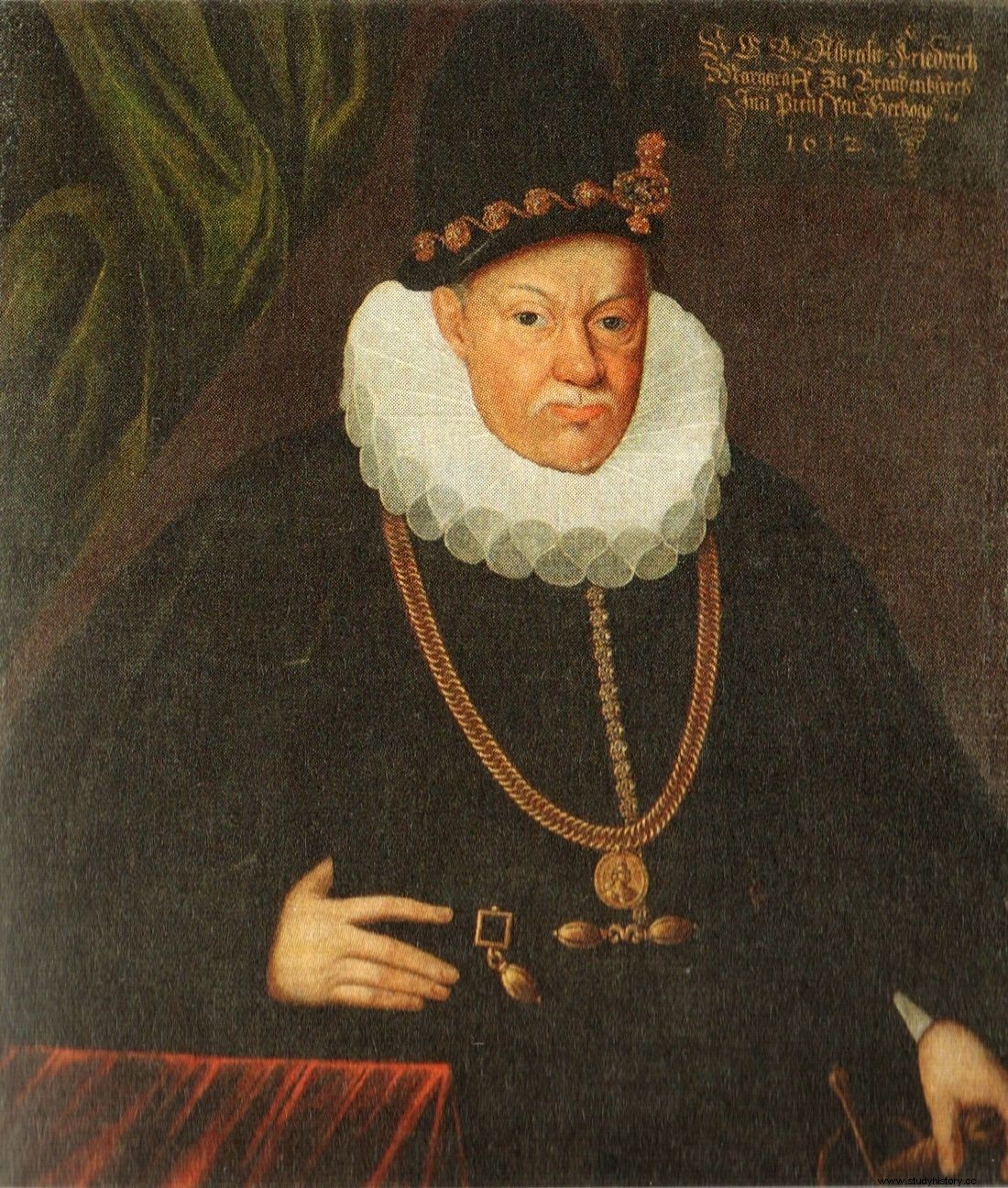
Albrecht Frederick Hohenzollern. It was thanks to his illness that Jan Zygmunt was able to take power in Ducal Prussia (source:public domain).
Unlike his predecessors, Jan Zygmunt was not at the mercy and disgrace of the Polish king. After all, he was the ruler of Brandenburg, the elector of the Reich, hence did not have to be loyal to Warsaw . It is true that he himself did not rule Prussia for a long time, he died in 1620. But he set a bad example for his successors.
His son, Jerzy Wilhelm, in the face of the war between the Republic of Poland and Sweden, was reluctant to help his ruler, and his grandson Frederick William betrayed openly during the Deluge. Brandenburg bomb , installed in 1618, it ticked for some time - when it broke out in 1772-1795, the Commonwealth disappeared from the map of Europe.
Jacob Kettler, Duke of Courland, or ask, and it will be given to you
But the concept of German Lutheran princes as vassals of the Commonwealth was not silly, as the example of Courland proves. This fief was to be incorporated as well, but in the end Jakub Kettlers were allowed to rule there.
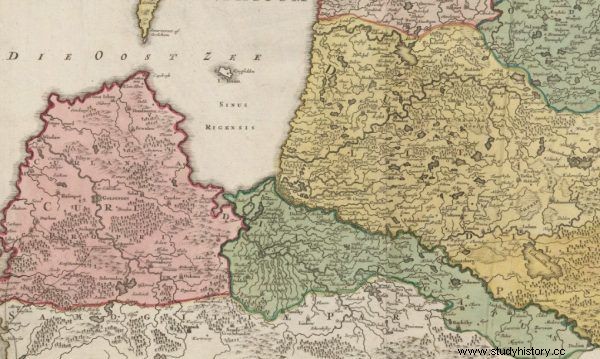
The rulers of the little Courland turned out to be loyalists who could be relied on (source:public domain).
He was the only son of William, the Duke of Courland and the vassal of the Commonwealth. Until the age of five, little Winnie was the heir to the throne. Unfortunately, his father brutally cracked down on the noble opposition, and in addition he began to enter into ties with the Swedes. The Polish king Zygmunt III could not tolerate such behavior in his vassal . In 1615, Wilhelm Kettler lost his throne, went into exile and never returned to Courland.
The son shared his father's fate, but this exile was not so burdensome - Jakub had to put everything into his pot, he studied at renowned universities in Western Europe, and as a well-connected young man he even became the titular chancellor of the University of Leipzig. However, his goal was to return to Courland.
Jakub's uncle, Prince Frederick Kettler, ruled there. Fortunately, he was not an uncle of Claudius' Shakespearean style. He had no children and was trying to secure the throne for his nephew . The decision in this case, however, belonged to the Polish king. Jacob himself did what he could. He used the influence of his cousins from the Radziwiłł family, he showed himself from the good side, fighting under the banner of the Polish-Lithuanian Commonwealth in the war with Russia. Finally, in 1638, King Ladislaus IV agreed that Jacob inherit Courland .
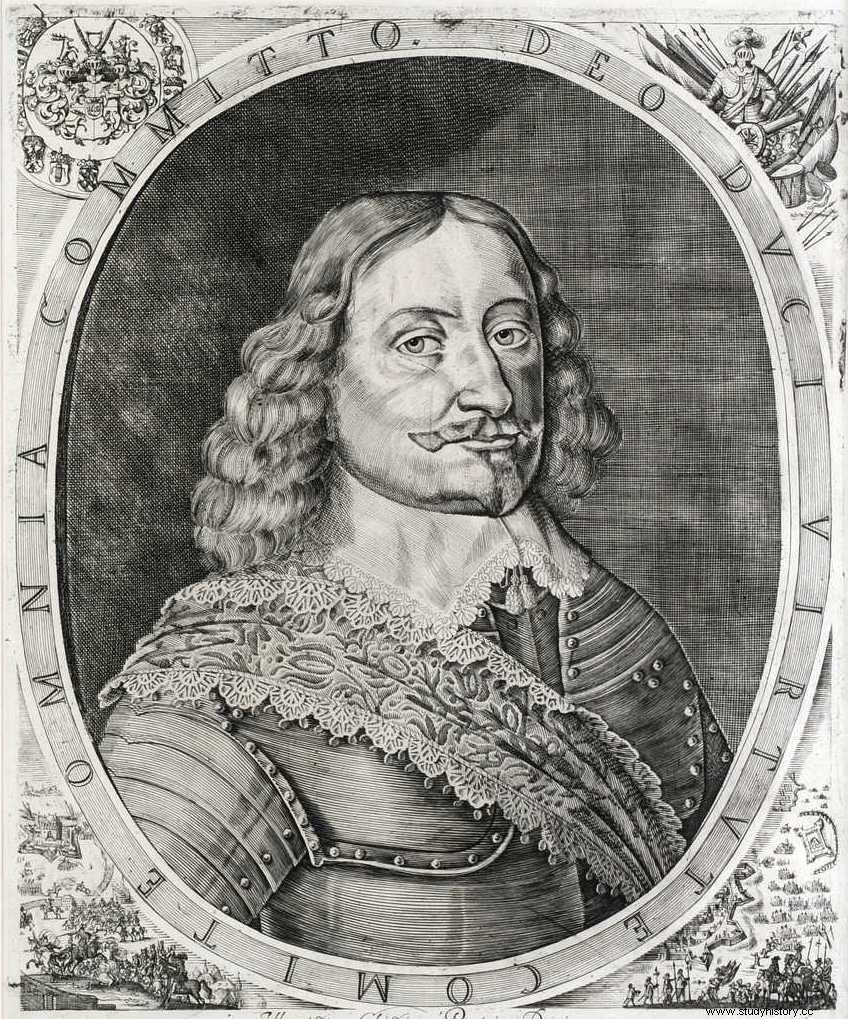
Jakub Kettler never betrayed Poland. He paid for his faithfulness with the loss of freedom and financial ruin (source:public domain).
Did Jacob show appreciation? Yes. Immediately after obtaining the consent, he gave King Władysław IV twenty thousand zlotys, and Queen Cecilia Renata thirty thousand zlotys. He paid tribute to another Polish ruler - personally to Jan Kazimierz, and through intermediaries to Michał Korybut Wiśniowiecki and Jan Sobieski. During the Swedish Deluge, when it was no longer possible to maneuver, he showed faithfulness to the king of Poland, which he paid with imprisonment and financial ruin.
Jeremi Mohyła, or how to rule in Sarmatian Vietnam
The Commonwealth also wanted to place rulers on the throne of Moldova. It was a buffer state where you had to jostle with the Ottoman Empire. The Polish candidate was overthrown by Turkish, Turkish Polish - and so on, although with the passage of time more and more often it was the Turks who were on top. Moldova can be described as Sarmatian Vietnam.
The most Polish of the Polish candidates seated on the Moldavian throne was Jeremi Mohyła. This boyar spent many years in the Commonwealth, spoke Polish, obtained a Polish indigenate, and Hetman Jan Zamoyski supported him in various ways. In 1595 Poles placed Mohyla on the throne .
In fact, Jeremi didn't have to do anything. It was the Poles who stopped the powerful Turkish-Tatar army and defeated the army of Stefan Rozwan, the hospodar of Moldova. Jeremi only had his predecessor stuck on the stake which anyway aroused the disgust of the Polish allies.
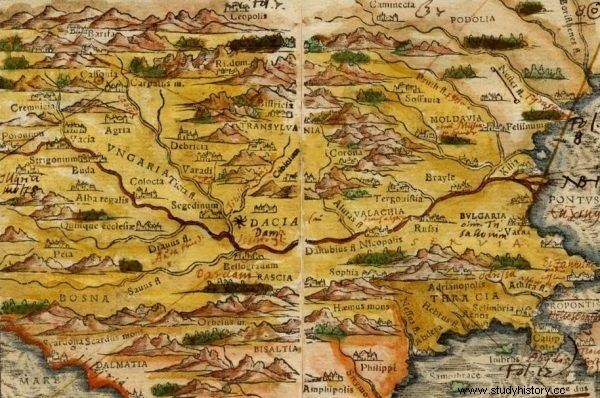
Moldova on the map from the mid-16th century. Click to enlarge (source:public domain).
Mohyla was a poor commander, but a great diplomat. Cleverly maneuvered between the Republic of Poland and Turkey . In Istanbul, the Polish candidate was finally accepted, making a good face for a bad game. On the other hand, Rzeczpospolita thought about getting rid of Mohyla and replacing him with someone more submissive. There was also the concept of the direct incorporation of Moldova to the Crown - at the sejmik in Wisznia in 1602 it was postulated by Jan Szczęsny Herburt, a supporter of Zamoyski.
In the end, Mohyla remained on the throne, and efforts were made to strengthen the ties of the hospodar with the Commonwealth through the marriages of his daughters with Polish magnates. The oldest of them, Regina-Chiajna, married Prince Michał Wiśniowiecki. Their son was named after his Moldavian grandfather - it was Jeremi Wiśniowiecki, the famous Jarema from Sienkiewicz's "With Fire and Sword".
Szymon Mohyła, or Poles rule in Bucharest
Also Szymon Mohyła, Jeremy's brother, could pose in pictures with the inscription:"I owe the throne to Poles." Specifically, in 1600 the troops of the Republic of Poland entered Wallachia , which is today's southern Romania. They crushed the troops of Prince Michael the Brave, arguably the most famous ruler in Romanian history after Dracula, and entered Bucharest. Colonel Jan Potocki helped Mohyle defeat the opposition and returned to his hometown.
Unfortunately, Szymon Mohyła turned out to be a bad, cruel ruler . With the prospect of fighting the Turkish candidates - because it was certain that the Ottomans would not let go of Wallachia - he alienated the opposition, and to make matters worse, he turned to the Tatars for help, which completely rejected the local population.

Szymon Mohyle definitely lacked his brother's diplomatic talents. As a result, he alienated almost everyone and lost the throne of Wolow (source:public domain).
Although in 1602 the Polish army once again visited it, and the Poles, in the person of Colonel Andrzej Potocki, brought Simon back to Bucharest, but the Commonwealth, absorbed in the war with Sweden, could not do more.
A few months later, Szymon Mohyła lost the throne, and Poland controlled Wallachia. The former ruler of Wallachia did not end badly. When his brother Jeremi died, he took over the rule of Moldova.
***
Michael Morys-Twarowski proves that we should not focus on the vision of our history full of failures and failures. Texts about a disastrous geopolitical situation and dangerous neighbors should finally be put aside. In the pages of the Polish Empire, the author boldly and eloquently describes the times when the Republic of Poland really was a superpower. It's high time to admit it.
